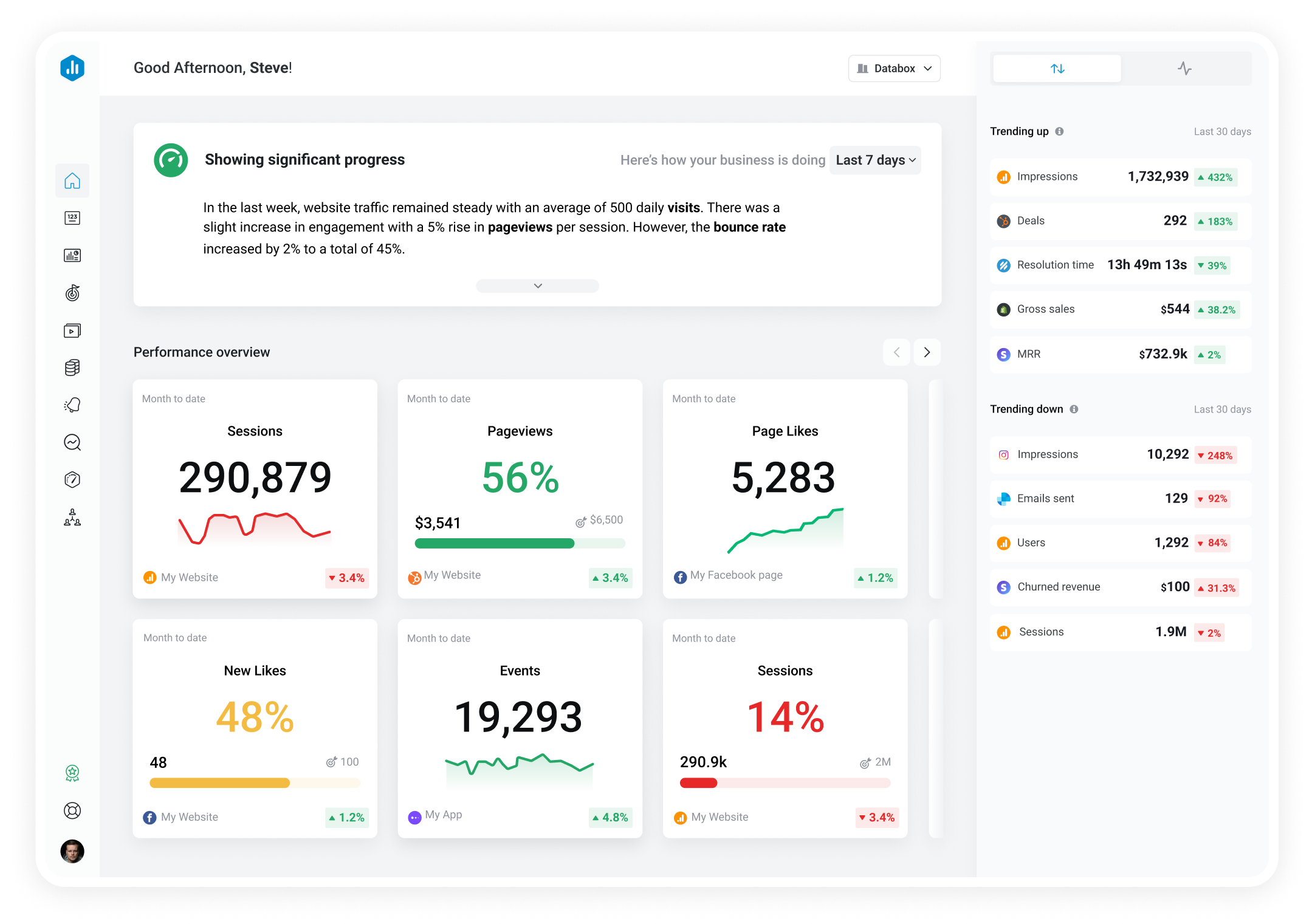Track all of your key business metrics from one screen
GET STARTED
 WooCommerce
Tax (Legacy)
WooCommerce
Tax (Legacy) The tax metric in WooCommerce refers to the amount of tax that applies to a product or order. Taxes can be set up at a global or local level, and can be based on a variety of factors, such as the customer's location, the type of product, and the tax laws that apply. The tax metric is used to calculate the total price of an order, and is an important consideration for online retailers who want to ensure that they are charging the correct amount of tax on each sale.
With Databox you can track all your metrics from various data sources in one place.

Used to show a simple Metric or to draw attention to one key number.
Databox is a business analytics software that allows you to track and visualize your most important metrics from any data source in one centralized platform.
To track Tax (Legacy) using Databox, follow these steps:
 Goals
Goals Scorecards
Scorecards Metric Digest
Metric Digest Metric Builder
Metric Builder Data Calculations
Data Calculations Performance Screen
Performance ScreenMaximize your WooCommerce store's potential with Databox's E-commerce Sales Performance template. Track key metrics like Total Sales, Orders, Refunds, Net Sales, and Average Order Value for data-driven insights that fuel growth.


